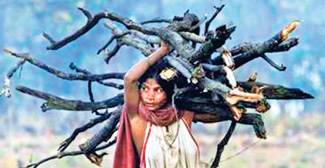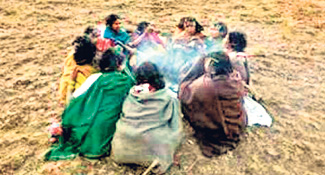Avatar, besides being a visually stunning demonstration of 3D capabilities, also raises some very interesting points in neuroscience. It mainly talks about a planet-wide neural network and ability to plug into one another's nervous system.
So I was just wondering if anyone has any view/information on the subject. Do you think such neural networks are possible? Do they already exist on some levels? How is the neuro-net of our brain different from that of our surrounding environment?
http://thebeautifulbrain.com/2010/01/the-neuroscience-of-avatar/
![]()
The Tree of Life. Gustav Klimt, 1909.

Views: 6456
Replies to This Discussion
-
True, but this is still on hypothetical level. I'd be more interested in knowing how real these neuro-nets are.. I've heard a number of conversations originating mostly from indigenous people that such environmental neuro-nets do exist and can actually be perceived by human neuro-nets right here on this very planet. According to them, these 'neuro-nets' can mostly be felt in areas where planetary energies are highly concentrated - such as ancient power spots. This is an interesting topic to me, because Avatar movie sort of suggests that its possible in some 'fable' world, however, from what I heard, such neuro-nets are actually in existence on this planet. Just wondering if there is any scientific proof to back up this theory :)
-
Here is an example. A real life Avatar happening here on this very planet. A mining company is destroying a sacred mountain in India in exchange for precious gems.
Stephen Corry, director of the charity Survival, which campaigns on behalf of indigenous people, said: "Just as the Na'vi describe the forest of Pandora as 'their everything', for the Dongria Kondh, life and land have always been deeply connected. The fundamental story of Avatar – if you take away the multi-coloured lemurs, the long-trunked horses and warring androids – is being played out today in the hills of Niyamgiri.
Indian tribes fight mining firm in real-life Avatar
Since 2007, four international investors — including the Church of England — have sold off their stock in the company citing ethical concerns over the project.
What's interesting is that Indian tribe appeals for Avatar director's help to stop Vedanta's desecration. IMO it would improve movie's reputation if it's director recognized the importance of taking responsibility for what's happening on this planet, especially if it is in direct correlation with the movie's script.

"We have lived here for thousands of years and have always worshipped Niyam Rajah in our villages," said Mukuna Majhi, a bare-chested elderly man, carrying an axe over his shoulder.
"If Vedanta mines the mountain, the water will dry up. In the Niyamgiri forests, there are tigers, bears, monkeys and wild boar. All kinds of other animals. We all live together. Where will the animals go to drink? Where will we go to drink?" asked a young man in a video posted on Survival International's Web site. "We won't allow Vedanta to take over our hills. We won't allow them to mine any part of our mountain. We won't allow Vedanta to touch our water," he said.
(Taken from a CNN news source)


-
They're just describing how different elements of their ecology are connected.
Precisely. I think neuro-net is this very connectedness of our brain/nervous-system to the surrounding environment, whether it is natural or man-made.
In other words, if you took all the plants & animals to a similar environment (say a comparable mountain/valley nearby) I'm sure they'd be just fine.
You raise an interesting point. The article mentions that those people spent 'thousands' of years in that environment. Given the point made earlier about connectedness of our nervous system to the environment, IMO this move could cause them irreparable psychological damage. In 'our' world things are a bit simpler, but again, we have not lived here for 'thousands' of years..
They may believe that the mountain is sacred, but that is not proof for it having some sort of "connection" to the environment beyond the obvious physical processes.
Science is relatively young, so naturally it can not explain a lot of things, which does not mean those things are not there. Biggest scientific discoveries were mostly based on intuition, not a proven scientific fact :) Given this, IMO it is important to apply science in a humble way, with respect for the culture. Otherwise we might be making expensive mistakes that are way too difficult to correct..
Thank you for participating in this discussion :)
-
I'm delighted by how a question posed with neurology in mind, migrated to cultural and environmental connectedness.
Part of what I take from the Guardian's article is that these people's culture is deeply intertwined with the mountain's ecology and resources. And, in some sense, culture itself is a means of storing and passing ideas along to others in a way which spans many generations. A several thousand year old community would have developed quite a bit of wisdom relevant to the mountain.
Although no direct neural connections are made as in Avatar, culture still imprints the mind. If you destroy the mountain, it's ecology and resources, then the related culture atrophies and associated mental constructs lose relevance / meaning.
-
Yes, it is. It's like, imagine there is no Windows OS anymore, just some other form of operating system that you were not familiar with, and you were asked to immediately adapt and survive by programming for it. A long-time Windows programmer would probably have a difficult time surviving that scenario.. :) Now imagine that magnified by 'thousands' of years.. Honestly some of us get upset when shelves are rearranged in their favorite supermarket, now imagine that done to the whole mountain. Another example is how we love cities. Some people love New York, others love London, Paris, etc.. All those cities are still relatively young, but there are people who are already attached to a particular city. They do not want to leave. Those people would suffer if that was taken away from them.
Yes, unfortunately a lot of them had to go through separation, almost irrevocably loosing their spiritual connections. I really enjoyed watching Australia movie, which also has aspects of 'connectedness' with natural phenomena. Australian government have been going through some
apologies to the aboriginals, but I do not believe they truly understand the suffering that they've caused to those people, and especially how to repair it..
Yes, years of culture leave very strong imprints. Though I'll probably have to disagree about the absence of direct neural connections. They are just not as 'visible' to the naked eye, as those in Avatar. That's why Avatar is a movie :) It's like if you have to travel away from your 'beloved' environment, coming back is really pleasant. It is a relaxing, healing experience. An example, if you are away from your computer for a number of days, and then finally get back to it, do you miss it? I think we all have some neuro 'connections' with outside phenomena, whether it is a mountain, a city, or a computer :)
Yes, partially that is true. But in many cases, plants and animals are also very sensitive to their habitats. This is the primary reason why there are so many endangered species, is because either they've been removed from their natural habitats, or their habitats have been changed too rapidly (more so by man than nature) before they could naturally adapt. One example of an environmentally sensitive plant is the Silver Sword, which grows primarily on slopes of Haleakala.
Another is a
Siberian Tiger, which almost has been brought to extinction by poaching, logging and development.

Yes, I really like how you worded this :) Now to scrap all that accumulated wisdom for a bunch of gems is highly wasteful. I believe we'll be much better off preserving these communities and learning from them. Their wisdom is not only relevant to that particular mountain, but also to this planet in general. They know how to survive here.
-
"I believe we'll be much better off preserving these communities and learning from them. Their wisdom is not only relevant to that particular mountain, but also to this planet in general. They know how to survive here."
Excellent point.
-
You are spot on with conservation areas. I've seen a bunch here in US and other places. Their main problem is complete disconnect. It's like you give them the mountain, but take away the river. Corridors are very important for migration, and the whole thing is a network. Disconnecting this network in any one place has an effect on the whole system. Indigenous people know that, which is clearly demonstrated in the drawings. For example, here is an aboriginal painting:
Yes. The problem is that tourists do not really understand the value of sacred places. It has no meaning for them, just purely visual satisfaction.
Yes, that would be correct. The problem is that only those who live within the ecosystem can explain it's value. Our mistake is that we try to rationalize it, instead of simply showing our humble respect for indigenous inhabitants and asking them what we can do to live in peace & harmony.
Yep. We have a tendency to 'attach' ourselves to others, usually with intention to gain what we most desire. Which is why our brains & nervous system is not that much different from environmental networks described above. Here is a 3D visualization of neuron connections:
Given that our nervous system and environmental networks have obvious similarities, it is not difficult to conclude that we are capable of making neuro connections with the environment, where we start to interact with it on deeper emotional levels. This opens up a whole world of possibilities that most of us are not really aware of in our everyday lives. Unfortunately we ignorantly keep chasing those gems, often with full disregard for anything that stands in our way.
-
That's an awesome painting!
Yea! Aboriginal people have a lot of awesome stuff like this, just Google 'Aboriginal Art'.
I think we often view them as resources to be exploited for our benefit, rather than equivalent entities to coexist with. I'm not sure where it ends, but certainly it's all related to how we view property "this is MINE" and ultimately self-identity "I am ME" - cf. we.
Precisely. Somehow we were made to believe that our self-identity has any ultimate nature to it. Our nervous system is composed of neurons as demonstrated in the above picture. If there was an identity somewhere, where would it be? Is it possible to have multiple identities? How many?
Or maybe 'identity' is just an illusory perception of what we think we are. Maybe there is no true absolute 'identity', maybe everything is simply interconnected - energy flows in, energy flows out. Maybe our mistaken 'identity' notion is what stands in the way of perceiving energy flows. Could this be the reason why we often feel so 'disconnected', not emotionally fulfilled and unsatisfied? Could this 'lack of connectedness' be the reason why we are so destructive? Could it be that we just don't know how to ask the right questions? Why?
-
I'd say we tend to think of ourselves as atomic individuals that exert mastery and control over things external to us.. rather than interacting and being a part of things.
Yea, we live in a world of power & competition, consumerism and greed. Everything is about me me me me me me me... A very boring point of view, if you ask me. It is much more fun to be a part of things, which opens up possibilities that were not previously available. I would like to see more people coming to same conclusions and actively participating in creation of environmentally-connected neuro-nets, healing ourselves, this planet, and various creatures that are on it.
-
Just noticed the Tree of Life painting you posted. I have that on my wall of my lil studio.
-
Just for general FYI, here is some more outstanding Aboriginal Art paintings that I think are relevant to this discussion.

And especially this one, looks very much like the Tree of Life..

-
That is beautiful work. One of my favorite things about our stay in Queensland was all the amazing aboriginal art.
© 2025 Created by Daniel Leuck.
Powered by
![]()